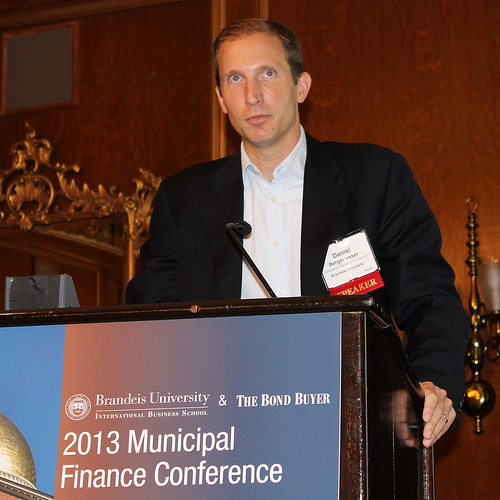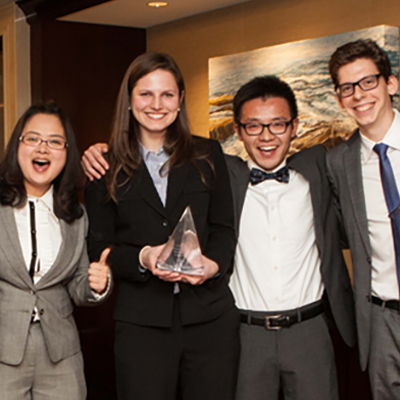Last week’s symposium "Brazil’s Balancing Act" — co-sponsored by the International Center for Ethics, Justice and Public Life and the Brandeis International Business School's Perlmutter Institute for Global Business Leadership — brought together a panel of experts to dialogue about the conflicting responsibilities towards economic growth, environment protection and indigenous rights experienced by a developing country such as Brazil.
According to Dr. Leigh Swigart, director of programs in International Justice and Society at Brandeis, the idea to conduct this forum began during a 2012 conference of the Brandeis Institute for International Judges where the issue of protection of indigenous rights in developing countries was an essential part of the dialogue. She said this panel "was a genesis of the discussions held at the conference, where it was realized that this issue is extremely pertinent to today’s global economy."
The discussion was moderated by Brandeis International Business School Dean Bruce Magid, who has extensive expertise in international trade and finance, having lived and worked in Venezuela and Brazil as well as conducted business throughout Latin America. During his opening remarks, Magid highlighted the importance of Brazil as an emerging economy by describing it with a well-known Portuguese phrase: a nação de amanhã, the nation of tomorrow. “The eyes of the world have turned to Brazil, a country in the process of realizing its full potential,” Magid said. “It is a country with many responsibilities to itself, not all of which are positive,”
The panelists elaborated on this theme put forward by Magid, and used the context of their area of expertise to consider the problems Brazil is facing in protecting its environment and indigenous population against rapid urbanization and industrialization.
Dr. Daniel Gleizer, vice president of one of Brazil’s largest banks Banco Itau BBA, followed by giving the audience a crash course in the macroeconomic history of Brazil, putting into perspective the country’s recent growth. “There needs to be effective and immediate social policy to address the legacy of poverty within Brazil,” he said, opening the discussion to possible solutions to the struggle Brazil is facing.
The panel also included Fernando Delgado, a lecturer on law and a clinical instructor at the International Human Rights Clinic at Harvard Law School, who voiced concern over human rights violations in the country, as a consequence of economic development. He was joined by Professor Cristina Espinosa, a social scientist and anthropologist concerned with sustainable development, and Dr. Moises Lino e Silva, a lecturer at Brandeis University who teaching an International and Global Studies seminar titled “The Rise of Brazil.”
Dr. Biorn Maybury-Lewis, executive director of the Cambridge Institute for Brazilian Studies, discussed the societal implications of the expansion of Brazil’s economy in his talk. “The indigenous people make up less than one percent of the country’s population,” he explained, “yet these are 817,000 people who will suffer if their rights are not protected.’
According to Dr. Maybury-Lewis, “it is not a matter of ‘if’ development will affect them, but ‘how’ it will affect them.”
Featured Stories
News Categories
@BrandeisBusiness Instagram
View this profile on InstagramBrandeis Intl. Business School (@brandeisbusiness) • Instagram photos and videos

August 5, 2013
2013 Municipal Finance Conference
February 7, 2013
Business school team wins investment challenge